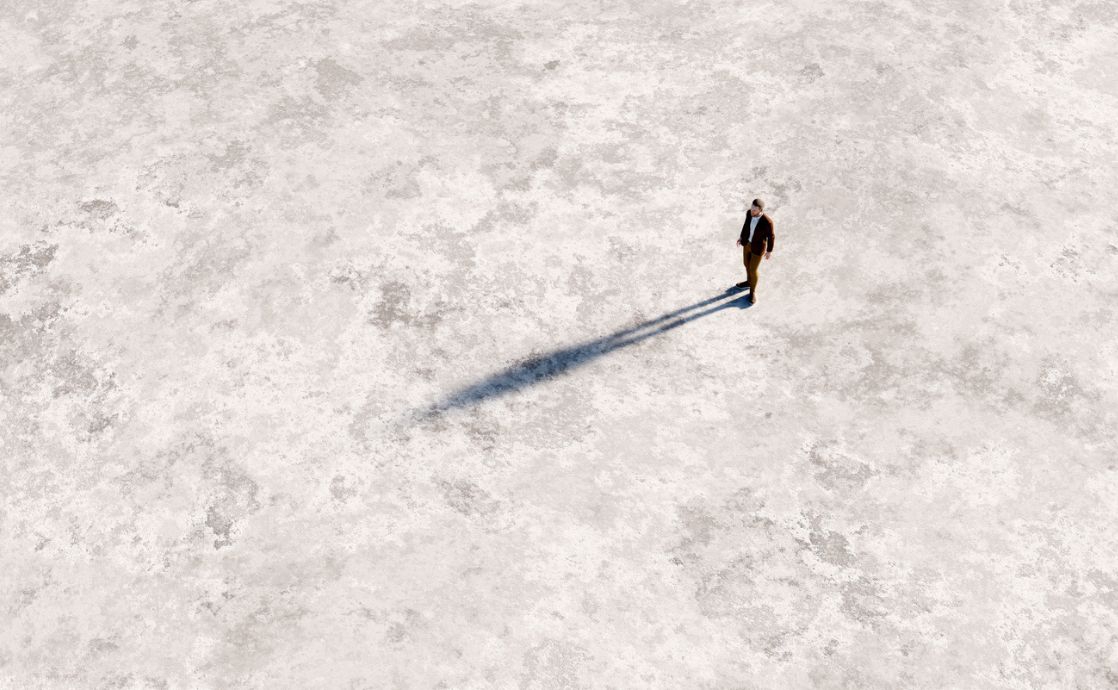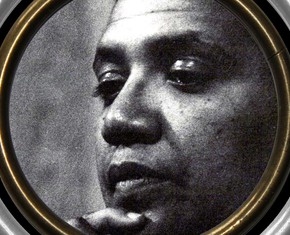The views expressed in our content reflect individual perspectives and do not represent the authoritative views of the Baha'i Faith.
A friend of mine once told me this disturbing but true fact: in a few hundred years — a mere blink in the span of cosmic time — no one who knew you will remain on Earth. That is a sobering thought, I thought.
Why? Well, it’s difficult to think of ourselves as gone without a trace, leaving no legacy or memory or meaning behind.
Instead, most of us think of ourselves as everlasting because our consciousness finds it hard to accept the concept of non-existence. Try it. You’ll see how troublesome it is to imagine a reality that excludes your existence because, after all, we each view reality through our own eyes.
RELATED: What Is My Purpose?
Everyone tends to think of themselves as everlasting — and guess what? They’re right. The Baha’i teachings confirm that perception. In a speech about the reality of eternal life he gave in Paris in 1911, Abdu’l-Baha explained:
Does a man cease to exist when he leaves the body? If his life comes to an end, then all the previous evolution is useless, all has been for nothing! Can one imagine that Creation has no greater aim than this?
The soul is eternal, immortal. …
The very existence of man’s intelligence proves his immortality; moreover, darkness proves the presence of light, for without light there would be no shadow. Poverty proves the existence of riches, for, without riches, how could we measure poverty? Ignorance proves that knowledge exists, for without knowledge how could there be ignorance?
Therefore the idea of mortality presupposes the existence of immortality — for if there were no Life Eternal, there would be no way of measuring the life of this world!
Of course, we all want to be remembered. Every person would like to leave some sort of legacy behind in this world.
Many define that legacy as their progeny — children, and grandchildren who can carry on our values, our perceptions, our uniqueness, and our stories. Others imagine that building a business or a governmental organization can add long-lasting value to a society and immortality to a name. Some see their legacy as creating or endowing an enduring contribution — art, architecture, or some charitable, philanthropic activity.
So here’s the question: if you’d like to create a legacy, to do some good for humanity long after you’ve physically departed from this world, what would be the most effective, lasting, and impactful thing you could possibly leave behind?
Alfred Nobel, the Swedish scientist/industrialist, multi-millionaire inventor of dynamite and smokeless gunpowder, and founder of the Nobel Prize, left behind an instructive story about his own legacy, summarized here by Wikipedia:
In 1888, the death of [Alfred Nobel’s] brother Ludvig supposedly caused several newspapers to publish obituaries of Alfred in error. One French newspaper condemned him for his invention of military explosives—in many versions of the story, dynamite is quoted, although this was mainly used for civilian applications—and this is said to have brought about his decision to leave a better legacy after his death. The obituary stated, Le marchand de la mort est mort (“The merchant of death is dead”), and went on to say, “Dr. Alfred Nobel, who became rich by finding ways to kill more people faster than ever before, died yesterday.” Nobel read the obituary and was appalled at the idea that he would be remembered in this way. His decision to posthumously donate the majority of his wealth to found the Nobel Prize has been credited to him wanting to leave behind a better legacy.
This story may be apocryphal, but it does contain a great truth. When death draws near, as it must for all of us, we naturally wonder what our contributions to the world have really amounted to, and that makes us ponder how we’ll be remembered.
In his writings, Baha’u’llah, the prophet and founder of the Baha’i Faith, asked that question about immortalizing the names of individuals and then answered it:
Would it profit you in the least if, as ye fondly imagine, your names were to endure? Nay, by the Lord of all worlds! … Should your names fade from every mortal mind, and yet God be well pleased with you, ye will indeed be numbered among the treasures of His name, the Most Hidden.
Abdu’l-Baha, Baha’u’llah’s son and successor, amplified that advice in his writings:
The dwellers of this ephemeral world, high and low alike, spend their days and nights in pursuit of worldly matters only to suffer, in the end, manifest loss. Praised be God that thou hast partaken of a fruit from the Tree of Life, and hast discovered a glimmer of the bounties of the Lord of manifest signs. Thou hast quaffed a cup of the wine of heaven, and hast left an enduring legacy in this transitory world, notwithstanding that those who have renounced the world seek neither name nor fame, and pursue neither ambition nor desire. They show no regard for this world and seek naught save the good-pleasure of God. They tread no path but His, and speak naught save His praise. Notwithstanding, the blessings of this world too are destined for the beloved of God, whereas the fate of the heedless is naught but loss and ruin in both this world and the world to come.
Ironically, you can best leave a legacy in this world by renouncing it, the Baha’i teachings affirm.
RELATED: The Physical or the Spiritual–Choosing What Lasts
Those who detach from the fast-fading temporal attractions of fame and fortune and devote their lives to the most spiritual pursuits — the growth of our inner human consciousness, selfless service to others, the promotion of peace and justice and kindness — will be long remembered, honored, and venerated, the Baha’i teachings promise. Think about it. Baha’u’llah’s revelation confirms that you can build your most profound legacy by acting, not on your own behalf, but by detaching from worldly concerns and devoting your efforts to humanity as a whole:
Beware lest ye cling unto that which ye possess, or take pride in your fame and renown. That which behoveth you is to wholly detach yourselves from all that is in the heavens and on the earth. Thus hath it been ordained by Him Who is the All-Powerful, the Almighty.
This isn’t an onerous chore, some drudgery imposed by a stern Creator — instead, detachment brings us great joy, not just in this world but in the next. Abdu’l-Baha said it clearly on one of his tablets:
Now is the time for joy and gladness, for acquiring the characteristics of the All-Merciful. This transitory world is passing even as a fleeting shadow, and the days of life are speeding by. When finally we hasten from this world to the next, we should do so with a candle in our hand, a brightness in our countenance, and a spirit in our heart. Observe how the exterior is the sign of the interior. All tombs and sepulchres, even of the world’s most celebrated monarchs, are dark and gloomy, whereas the holy resting-places of the chosen ones of the All-Merciful are radiant and luminous. Let us then exert ourselves with heart and soul, and lift up our voices in a gladsome chorus, that we may become acceptable at the Threshold of Oneness; be made alive by the fragrant breaths of holiness; detach ourselves from whatsoever is of the world; become devoted servants at the threshold of Him Who is the Ever-Living, the Self-Subsisting; be made recipients of His infinite bounty, and attain to everlasting life.
















Comments
Sign in or create an account
Continue with Googleor